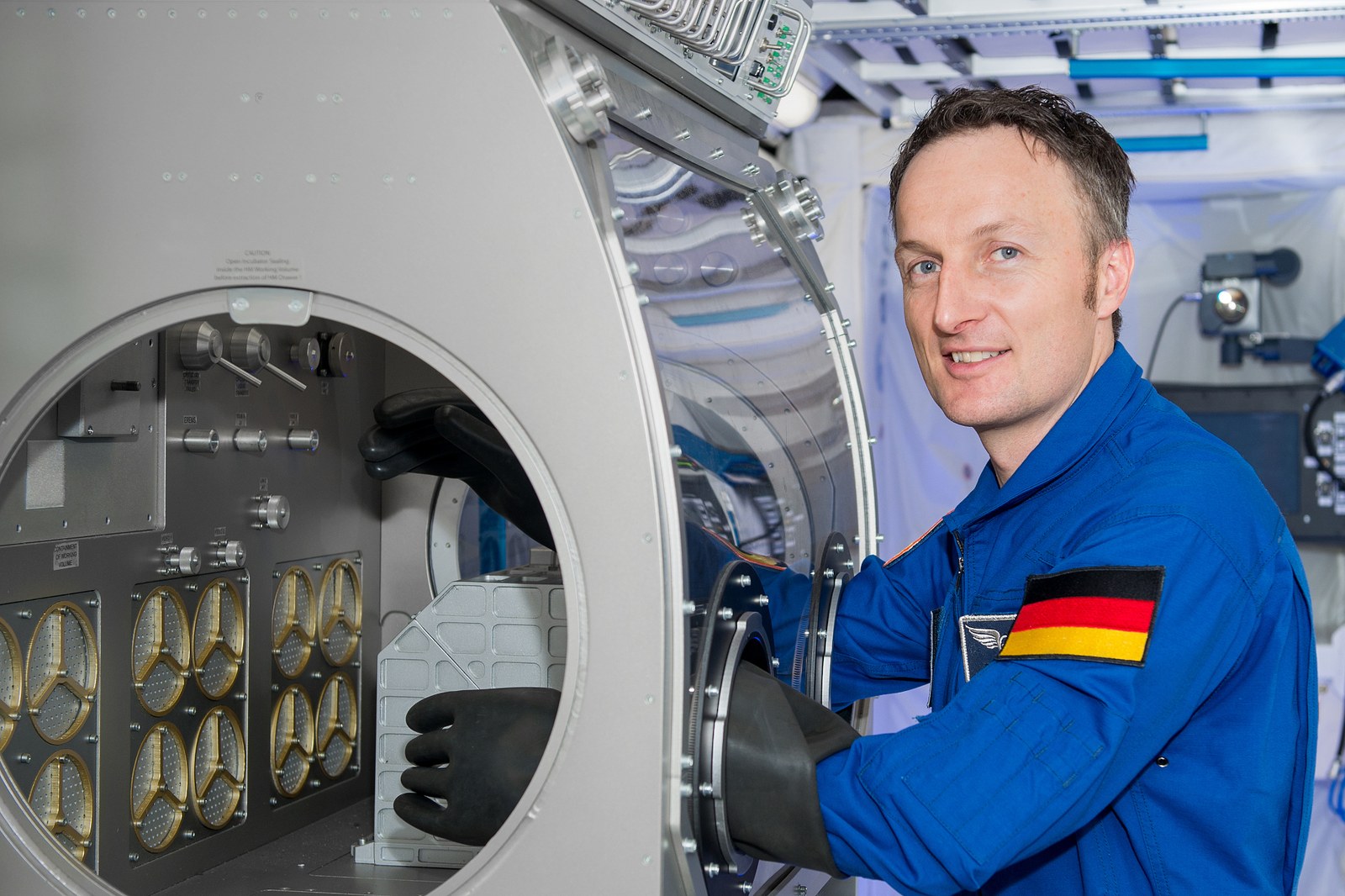Ready to continue 20 years of progress

Twenty years ago, on 2 November 2000, the hatch of the International Space Station (ISS) was opened for the very first time and the first ISS commander, William McMichael Shepherd (NASA / US), and cosmonauts Yuri Pavlovich Gidzenko and Sergei Konstantinovich Krikalev (Roscosmos / Russia) became the first ISS crew to move into their new home in space. Their 136-day stay came to an end on 19 March 2001, but their mission marked the beginning of continuous occupation of the space station. How does a current German ESA astronaut remember this historic mission? DLR editor Martin Fleischmann talked to Matthias Maurer about the first three astronauts to live and work on the ISS.
Interview by Martin Fleischmann
Dr Maurer, 2 November 2020 will mark 20 years of continuous ISS operations since the arrival of its first long-term crew. Did you follow the launch of Expedition 1? Can you remember what you were doing on that date?
Unfortunately, I missed the launch of the first long-term crew to the ISS in late October 2000. At that time, I was in the middle of preparing my doctoral thesis in Aachen. I was completely immersed in my materials engineering dissertation, ‘Lightweight composites made of aluminium foam with thermally sprayed coatings’. As there were no social media channels or smartphones back then, the launch completely passed me by.
William McMichael ‘Bill’ Shepherd, Yuri Pavlovich Gidzenko and Sergei Konstantinovich Krikalev, the crew of Expedition 1, began the ISS era. What role has Expedition 1 played for you and your mission to the ISS?
Those first astronauts put the ISS into operation. They installed vital systems for the supply of breathable air and sanitation, for example. They began conducting the very first scientific experiments there, which are continuing to this day, including investigating the production of protein crystals. In addition, the crew of Expedition 1 was hugely inspirational for younger generations, including by getting students interested in amateur radio through the Amateur Radio on the International Space Station (ARISS) project. The first astronauts on board the ISS laid the foundations for the work that we are doing now, 20 years later. Today, of course, our experiments are much more sophisticated and cutting-edge. We have learned a lot along the way.
The trio were able to take off from Yuri Gagarin’s launch site for their journey to the ISS, which was considered a great honour. How would you sum up the historical significance of the mission?
Expedition 1 was a major milestone for spaceflight, not only for the US, Russia and Europe, but for space research in general. It paved the way for international cooperation and long-term missions.
What is the first thing that comes to mind when you think back to that time? What are your memories of Expedition 1?
At the time, I would certainly have thought: ‘I couldn’t be further from being an astronaut.’ I had always been fascinated by space travel, but back in 2000 I could never have imagined that I might one day be involved myself. I can look back now with a wry smile at my lack of foresight, as I am likely to be up there myself a year or so from now.
The ISS has expanded greatly over the last 20 years. How would you assess the research opportunities available now, as compared to back then?
The station has grown incredibly over the last 20 years and today’s experiments are far more sophisticated than they were back then. These days, the astronauts have a much better understanding of how this work should be performed in microgravity conditions. As a result, the quality of the experiments is quite different. Nonetheless, those pioneers carried out first-class research in space and their experiments paved the way for the outstanding scientific projects that we are conducting in space today.
